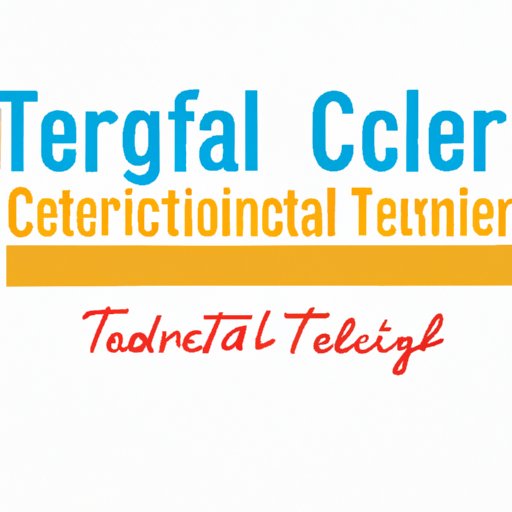Introduction
Becoming a teacher is a noble and rewarding profession that requires a dedication to learning, growth, and development. However, many aspiring teachers are often unclear about the education and certification process involved in becoming a fully certified teacher. In this article, we will explore the education required to become a teacher, including state-by-state requirements, types of certifications and degrees, traditional vs. alternative paths, and continuing education options.
The Required Education for Becoming a Teacher: An Overview
The education required for becoming a teacher varies from state to state, but in general, a bachelor’s degree from an accredited institution, completion of a teacher education program, and passing certification exams are necessary. The requirements, however, can differ depending on grade level, subject, and location.
There are four types of teacher certifications and degrees: initial certification, professional certification, degrees, and endorsements. Each has specific requirements and provides different opportunities for advancement.
Traditional paths, such as the bachelor’s degree and teacher education program, provide a solid foundation for aspiring teachers. Alternative paths, such as online programs or alternate routes, may provide a faster path to certification, but some critics argue they may not provide as well-rounded preparation.
From High School to Teaching Degree: The Journey to Becoming an Educator
High school graduates who aspire to become educators must complete a specific path of undergraduate education, beginning with general education classes, such as English and science. The next step is to complete the prerequisites for entry into a teacher education program, including a minimum of 50 to 60 credit hours.
Financing a degree in education can be challenging, but scholarships, grants, and loans are available for eligible students. Additionally, some schools offer financial assistance programs, including tuition deferment, teacher assistantship programs, and reimbursement initiatives.
Beyond the Bachelor’s Degree: Continuing Education for Teachers
Continuing education for teachers provides professional development opportunities to help them stay current on the latest research and practices in the field. Various types of continuing education offer diverse benefits, including access to new resources and ideas, opportunities for career advancement, and improved teaching strategies.
Some advanced certification programs, for example, the National Board Certification, provide benefits such as increased pay, advanced career opportunities, and additional teaching credentials, but there are a few disadvantages as well. They are expensive and require a significant time commitment.
Exploring Alternative Paths to Teacher Certification
Alternative paths to teacher certification, such as alternate routes or online programs, provide a faster path to certification than traditional programs. On the downside, alternative certification programs may not provide as comprehensive preparation and may sometimes cost more as they require an added certification process.
Before selecting an alternative certification program, do proper research to understand the components of the program, admission requirements, the certification process, and financing options.
What to Consider When Choosing a Teacher Education Program
It is important to find the right teacher education program that meets your needs and offers specializations you may need. Accreditation of the program is important, and geographical proximity, graduation rate, and employability should be considered when researching programs.
An accreditation assessment proves that the program meets national standards and is supported by the United States Department of Education. Accreditation is an ongoing process and requires periodic review to ensure it stays within the requirements.
The Benefits of Pursuing a Master’s Degree in Education
A master’s degree in education offers various benefits, such as earning potential, promotion opportunities, and offers more reliable job stability. Earning a master’s degree in a specific area of education such as reading or special education provides various career opportunities.
The three types of education master’s degrees are Master of Arts in Teaching (MAT), Master of Education (M.Ed), and Master of Science in Education (MS). They provide various advantages like instructional design, educational leadership, and educational technology. Financial support offers like scholarships, grants, and loans should be utilized.
The Role of Professional Development in Advancing Teacher Education
Professional development is vital for teachers to continue education and stay current in their field, and to master new strategies to improve student learning. Professional development provides teachers with new teaching tools and resources, such as technology integration, creating effective classroom environments, and collaboration.
To find and pursue professional development opportunities, begin by contacting your state’s education department, local universities and colleges, and visit teacher conferences and workshops.
Conclusion
Becoming a teacher requires a dedicated effort to education and growth. No matter what type of path you choose, it is important to understand that this is the starting point of what will be an ongoing journey of learning and development. Understanding the education required for becoming a teacher, the options available, including alternative certification and continuing education, and how to further advance your education and career will surely lead to a successful career.
(Note: Is this article not meeting your expectations? Do you have knowledge or insights to share? Unlock new opportunities and expand your reach by joining our authors team. Click Registration to join us and share your expertise with our readers.)
